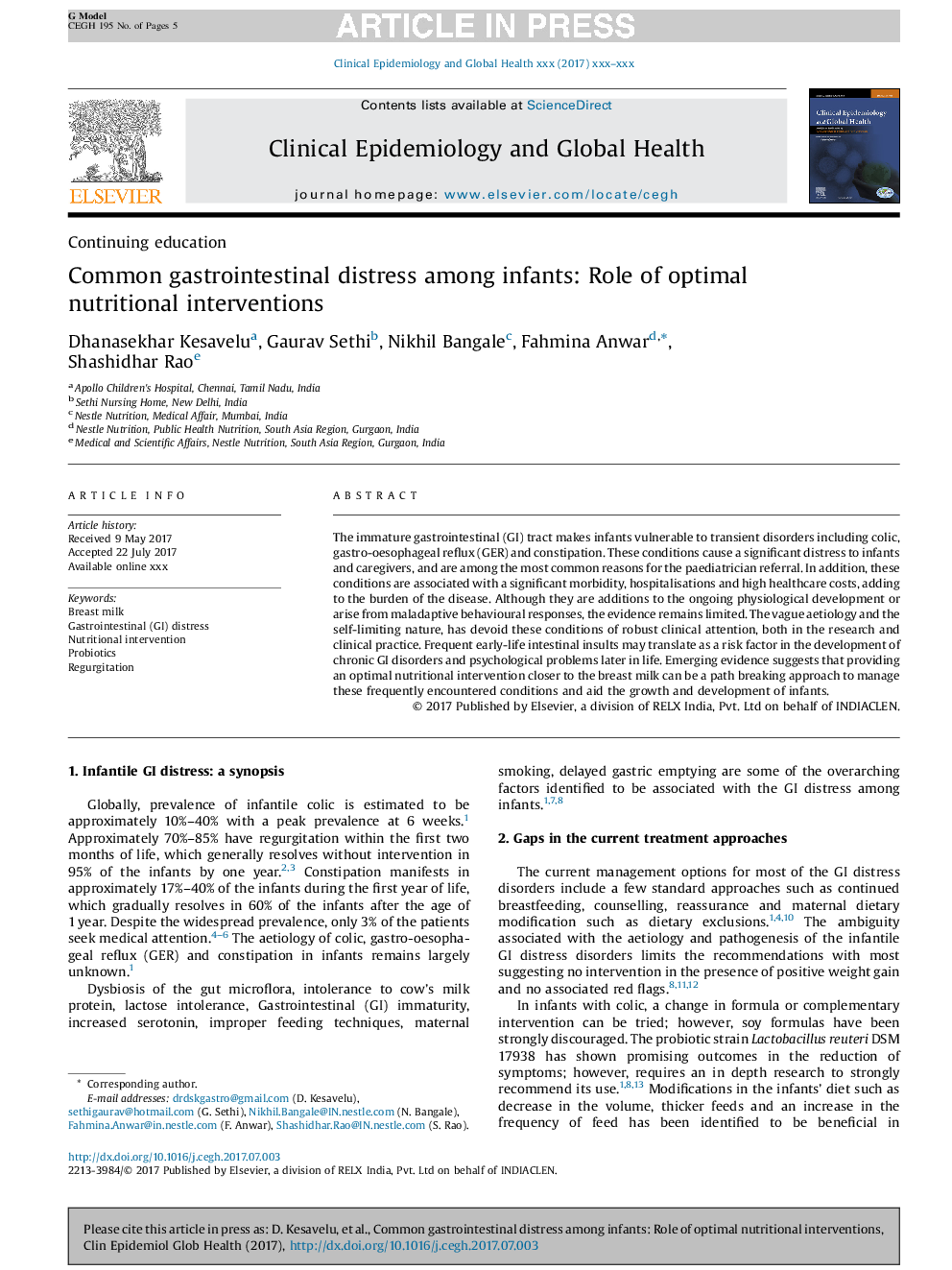| Article ID | Journal | Published Year | Pages | File Type |
|---|---|---|---|---|
| 8744700 | Clinical Epidemiology and Global Health | 2018 | 5 Pages |
Abstract
The immature gastrointestinal (GI) tract makes infants vulnerable to transient disorders including colic, gastro-oesophageal reflux (GER) and constipation. These conditions cause a significant distress to infants and caregivers, and are among the most common reasons for the paediatrician referral. In addition, these conditions are associated with a significant morbidity, hospitalisations and high healthcare costs, adding to the burden of the disease. Although they are additions to the ongoing physiological development or arise from maladaptive behavioural responses, the evidence remains limited. The vague aetiology and the self-limiting nature, has devoid these conditions of robust clinical attention, both in the research and clinical practice. Frequent early-life intestinal insults may translate as a risk factor in the development of chronic GI disorders and psychological problems later in life. Emerging evidence suggests that providing an optimal nutritional intervention closer to the breast milk can be a path breaking approach to manage these frequently encountered conditions and aid the growth and development of infants.
Related Topics
Life Sciences
Immunology and Microbiology
Virology
Authors
Dhanasekhar Kesavelu, Gaurav Sethi, Nikhil Bangale, Fahmina Anwar, Shashidhar Rao,
